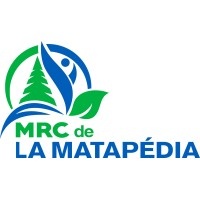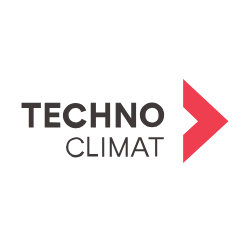
Open
MRC La Matapédia — Program for Restoring Underutilized Agricultural Lands 2023-2025
Last Update: December 12, 2025
QC, Canada
Supports restoring underused agricultural land in La Matapédia
Grant and Funding
At a glance
Funding available
Financing goals
Reduce the ecological footprint
Integrate new technologies
Marketing a product
See more
Eligible Funding
- Maximum amount : 20,000 $
- Up to 50% of project cost
Timeline
- Open Date : January 1, 2023
Eligible candidates
Eligible Industries
- Agriculture, forestry, fishing and hunting
Location
- La Matapédia
Legal structures
- For-profit business
Annual revenue
- All revenue ranges
Organisation size
- All organization sizes
Audience
- Rural or Northern Residents
- Startups
Overview
The MRC La Matapédia – Program for Restoring Underutilized Agricultural Lands (TAD) 2023‑2025 provides up to $20,000 per producer (covering up to 50% of project costs and a maximum of $2,500/ha) to support the return to production of agricultural lands that have been unused for at least five years. Eligible activities include decommissioning, clearing, grinding, decompaction, soil preparation, and related machinery use and agronomic characterization fees for lands in permanent agricultural zones.
Activities funded
- Projects that bring underutilized or abandoned agricultural land back into production on the territory of the MRC de La Matapédia.
- Projects to clear and prepare fallow agricultural land (e.g. brush removal, soil preparation) to enable new or expanded crop production.
- Initiatives to expand existing farming operations by reclaiming additional degraded agricultural parcels.
- Projects to support the start-up of new agricultural enterprises through the re-cultivation of unused farmland.
- Projects that restore several distinct parcels or blocks of agricultural land within a single overall reclamation initiative.
Eligibility
- The applicant must be a private business or a non-profit organization that holds a valid agricultural identification number (NIM) as a farm operator, or a beneficiary NIM accompanied by a business plan covering at least 3 years.
- The applicant must own or lease agricultural land located in the MRC de La Matapédia, in a permanent agricultural zone, that has been unused and not maintained, cultivated or used for other agricultural purposes for at least 5 years.
- The land targeted by the project must either have an agronomic characterization confirming its potential for recultivation, or be listed in the MAPAQ inventory and then characterized by an agronomist.
- The project must restore at least 1 hectare of underutilized agricultural land and enable the land to generate agricultural revenues within 3 years after the work (except for fruit orchard projects).
- The applicant must provide a viable business plan (for start-ups) or cropping plan (for existing farms) and commit to financing the portion of project costs not covered by this or other funding programs.
Who is eligible?
- Private agricultural enterprises holding or planning to hold farm operations on underutilized agricultural land in the MRC de La Matapédia
- Non-profit organizations (NPOs) carrying out agricultural projects on underutilized agricultural land in the MRC de La Matapédia
Eligible expenses
- Costs directly related to restoring underutilized agricultural land, including clearing, deforestation, brush removal, shredding/chipping, soil decompaction and soil preparation (up to 50% of total work costs and up to $2,500 per hectare).
- Expenses incurred by the farming operation for the use of its own machinery to carry out the land restoration work (up to 50% of total work costs).
- Rental of machinery for tree and shrub cutting, shredding woody material and soil work, including transportation of machinery to the site.
- External labour costs for carrying out the restoration work on the land.
- Professional fees of an agronomist for characterizing the agronomic potential and condition of the land, up to $500 per producer.
Eligible geographic areas
- Businesses with agricultural land located within the territory of the MRC de La Matapédia, in Quebec.
- Agricultural land situated in the permanent agricultural zone of the MRC de La Matapédia.
Selection criteria
- Projects are evaluated using a scored selection grid specifically developed for this program.
- If available funds are insufficient to support all applications, projects with the highest scores on the selection grid are prioritized.
- Projects that enable the return to cultivation of several parcels or blocks of land receive additional points in the evaluation.
How to apply
1
Verification of eligibility criteria
- To be the owner or tenant of uncultivated land for at least 5 years located in the territory of the MRC of La Matapédia.
- To hold an agricultural operator's NIM or a beneficiary NIM with a business plan of at least 3 years.
2
Preparation of the required documents
- Fill out the official application form.
- Obtain the agronomic characterization sheet.
- Prepare a business plan for the company or a crop plan for an existing business.
- If applicable, obtain a lease agreement with a minimum duration of 8 years and a power of attorney from the owner.
- Prepare a breakdown of expenses incurred for the use of machinery if applicable.
3
Submission of the request
- Confirm that all documents are complete and signed.
- Send the application and the required documents by email to administration@mrcmatapedia.quebec.
4
Reception of the response
Waiting for confirmation from the MRC of La Matapédia following the submission of the request.
Additional information
- The total program budget is $200,000 and funding is available for projects carried out in 2023, 2024 and 2025, or until funds are exhausted.
- Only costs incurred after written acceptance of the financial assistance by the MRC are recognized, with the exception of a prior agronomic characterization needed for eligibility.
- Project results and conclusions must be made available to the MRC and the monitoring committee to enhance knowledge on restoring unused agricultural land.
- Projects must start, including committing expenditures, no later than 9 months after acceptance to remain eligible for reimbursement.
Contacts
administration@mrcmatapedia.quebec
QC, Canada
Apply to this program
Frequently Asked Questions about the MRC La Matapédia — Program for Restoring Underutilized Agricultural Lands 2023-2025 Program
Here are answers to the most common questions about the MRC La Matapédia — Program for Restoring Underutilized Agricultural Lands 2023-2025. This section explains what the program is, how much funding is available, eligibility requirements, application deadlines, and other important details to help you determine if this grant is right for your business.
What is the MRC La Matapédia — Program for Restoring Underutilized Agricultural Lands 2023-2025?
How much funding can be received?
Who is eligible for the MRC La Matapédia — Program for Restoring Underutilized Agricultural Lands 2023-2025 program?
What expenses are eligible under MRC La Matapédia — Program for Restoring Underutilized Agricultural Lands 2023-2025?
Who can I contact for more information about the MRC La Matapédia — Program for Restoring Underutilized Agricultural Lands 2023-2025?
Where is the MRC La Matapédia — Program for Restoring Underutilized Agricultural Lands 2023-2025 available?
Is the MRC La Matapédia — Program for Restoring Underutilized Agricultural Lands 2023-2025 a grant, loan, or tax credit?
Apply to this program
More programs like this

Grant and FundingOpen
Support for biofood exports - individual projects
Ministry of Agriculture, Fisheries and Food (MAPAQ)SEB supports Quebec agri-food market expansion outside Quebec

Grant and FundingOpen
ÉcoPerformance — Recommissioning of building mechanical systems
Gouvernement du QuébecFunding to optimize the operation of building mechanical systems

Loans and Capital investmentsOpen
Financing to respond to the offensive of new tariffs and for initiatives for resilient and exporting companies (FRONTIERE)
Investissement Québec (IQ)Supports Québec exporters impacted by new U.S. tariffs

Grant and FundingClosed
Program to support the development of agriculture and agri-food in the regions
Ministry of Agriculture, Fisheries and Food (MAPAQ)Support program for regional agriculture and agri-food development

Grant and FundingOpen
Efficient Solutions Program — Agricultural Component
Hydro-QuébecMaximize your farm's energy efficiency and save money with the Enhanced Efficient Solutions Program

Grant and FundingClosed
PADAAR — Measure 4021 – Promotion of regional products
Ministry of Agriculture, Fisheries and Food (MAPAQ)Supports regional agri-food promotion and consumer awareness initiatives

Grant and FundingOpen
Support program for the development of reserved designations and promotional terms — Component 1
Ministry of Agriculture, Fisheries and Food (MAPAQ)Supporting development of reserved designations and valorizing terms

Grant and FundingClosed
AgroPerformance – Stream 1 : Support for the agricultural sector in adopting agritechnologies
Gouvernement du QuébecSupports Quebec farms adopting agritechnologies and priority equipment

Grant and FundingOpen
Innovative Projects Program
Hydro-QuébecSupports innovative, energy-efficient projects for multi-building developments

Grant and FundingOpen
Technoclimat
Environnement Québec (MELCC)Financial assistance for the demonstration of new technologies in Quebec
Sign up to our platform to access the MRC La Matapédia — Program for Restoring Underutilized Agricultural Lands 2023-2025 information sheet for free
Get access to 4,000+ programs, practical guides, personalized alerts, and an AI assistant to support your grant applications.